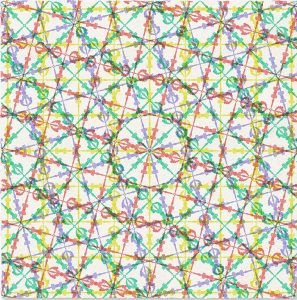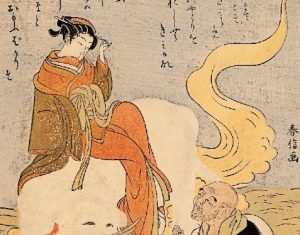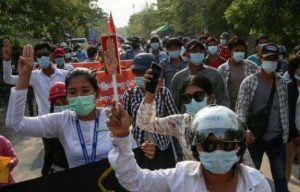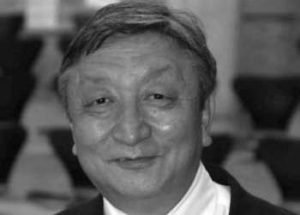
Academic norms often encourage scholars of religion to present themselves in ways that emphasize objectivity and skepticism, and they hardly ever discuss their own personal experiences with religion. To echo the title of Prof. Russell T. McCutcheon’s influential 2001 book, the academy has for decades demanded that scholars be “critics not caretakers” of the religious traditions they study.
In order to try to quantify scholars’ involvement in religion, the co-authors of this article recently conducted an anonymous online survey. The survey revealed that, contrary to their public reticence, the majority of Buddhist studies scholars active in the field today are highly engaged in religious and spiritual activities. They even are prone to crediting mystical, spiritual, or religious experiences with influencing their choice to go into the study of religion.
Let’s dig into the details. . . .
Who were the respondents?
Our survey was conducted in early 2024 and was distributed through social media channels frequented by Buddhist studies scholars, as well as the H-Buddhism network (a scholarly online discussion forum). Although intended to measure Buddhist studies scholars’ involvement in religion, our survey was disguised as a demographic questionnaire so as not to attract or repel particular kinds of respondents and thereby skew the results. While a variety of different types of people participated in the survey, 109 reported being either currently active PhDs or current PhD students in the field of Buddhist studies. Those are the respondents we showcase here.
Overall, this pool was 53 per cent male, 40 per cent female, and 2 per cent “non-binary/other gender, ”with 5 per cent abstaining from answering. A majority identified as white (60 per cent), while other respondents identified as Asian/Pacific Islanders (22 per cent), Hispanic/Latino (7 per cent), Native American/Indigenous (1 per cent), or Other (9 per cent). No respondents identified as Black or North African/Middle Eastern/Persian.
The majority of respondents (60 per cent) received or are receiving their PhDs in the United States. Also represented were the UK (9 per cent), other European countries (13.5 per cent), Canada (8 per cent), Asia (7 per cent), and other countries/regions (2 per cent). Three quarters of the respondents (74 per cent) said that they primarily spoke English. Although we did not ask about employment status, the fact that 75 per cent of respondents reported annual incomes of over US$50,000 led us to surmise that a large number of our respondents were employed as full-time faculty members.*
Spiritual or religious participation
After the participants had completed the demography portion, our survey asked them a series of questions about their religious and spiritual lives. Here, the results were surprising. When asked how often they participated in “religious or spiritual activities (e.g., prayer, meditation, ritual practice, etc.) or attended religious services (e.g., church, synagogue, temple),” well over half of the respondents (58 per cent) reported that they participated weekly or more often. Notably, two-thirds (65 per cent) reported having had at least one “religious, spiritual, mystical, or awakening experience.” Furthermore, when asked about the impact of such experiences on their decision to enter the field of religious studies, a majority of the respondents said they were either “instrumental” (30 per cent) or “somewhat influential” (25 per cent).
We also asked the respondents to specify what kinds of spiritual, religious, or awakening experiences they had had, based on the types of experiences listed in the Brief Mysticism Scale. The graph below shows the number of respondents who reported different types of experiences. They were able to select more than one option.

When given the opportunity to elaborate in an open-ended question, these scholars described their experiences in ways that often were consonant with Buddhist spiritual norms. For example, respondents spoke of “remaining without thoughts,” “calm, peaceful, and joyful in my mind and body,” “a melting of myself,” “brightness around my head,” “overwhelming sense of love and wholeness,” and the “interconnectedness of everything.” Multiple respondents mentioned that these effects were specifically caused by engagement in meditation, and that they felt inspired to dedicate themselves to Buddhist practice and Buddhist studies ever since.
Although unprompted, some respondents commented on the tension between their personal experiences and the scholarly study of religion. As one scholar recalled: “It was after finding a [Buddhist] practice and recognizing a gap between what my fellow practitioners seemed to understand and what academics studying this community seemed to grasp that I decided to enter the academic field of religious studies.” Others mentioned being influenced by their experiences to focus specifically on the study of meditation or related topics in their academic work.
Conclusion
As Charles Prebish wrote in a recent article for Lion’s Roar, the number of Buddhist studies scholars who identify as practicing Buddhists is notably on the rise. He estimates that somewhere between 25–50 per cent of currently active scholars are Buddhist. Nevertheless, it remains rare today for scholars to speak publicly about their religious identities. Prebish suggests that, “in many cases, this defensive professional tactic is used to ensure that matters of religious preference and practice are excluded from important personnel matters such as promotion and tenure decisions.” (Lion’s Roar)
If they are reluctant to talk about their religious identities in public, there is an even firmer taboo in place when it comes to talking about first-hand religious experience or other effects of religious practice. As Jeffrey Kripal, one of the few scholars who has openly discussed his own mystical experience, put it in a recent interview: “We can talk about how things are social representations or how they privilege some groups and deprivilege others. But what we can’t talk about is . . . that human beings actually do have experiences of transcendence and they do have experiences of unity, not just with the species, but with the universe.” (Elise Loehnen)
Nevertheless, our study suggests that there is actually quite a bit going on behind the scholarly curtain, so to speak. While they may not always divulge it publicly, when asked in an anonymous survey, the majority of scholars reveal a sincere commitment to and a personal investment in spiritual practice.
* For more statistics about the profession, see “The Academic Discipline of Buddhist Studies: 2023 Survey.” (H-Net: Humanities & Social Sciences Online)
References
McCutcheon, Russell T. 2001. Critics Not Caretakers: Redescribing the Public Study of Religion. New York: State University of New York Press.
See more
The New Panditas (Lion’s Roar)
Jeffrey Kripal: When Spirituality and Science are the Same (Elise Loehnen)
Related features from BDG
Scholarship on the Buddhist Path: A Modern Legacy in an Ancient Tradition
Buddhistdoor View: Scholarship Heals the World: Self-Reflection for Buddhist Studies
Sino-Indian Narratives on the Transcendent: Chinese Philosophy Scholar Laura Lettere on the Buddhacarita
Buddhistdoor View: Respectful Scholarship – Moving Forward and Learning from the Past
Related news reports from BDG
Scholars Explore “Buddhish” Dying in Australia
Young Buddhist Scholars Meet in New Delhi for Conference on Buddhist Pilgrimage
Indian PM Modi Meets Buddhist Scholar Robert Thurman and Other Thought Leaders during US Visit
Buddhist Studies Scholar Jiang Wu Wins Prestigious Guggenheim Fellowship
Khyentse Foundation Awards University of Sydney US$3.5 Million to Continue Funding Tibetan Buddhist Scholarship
Buddhist Scholar Duncan Ryuken Williams Wins Prestigious Grawemeyer Religion Prize












